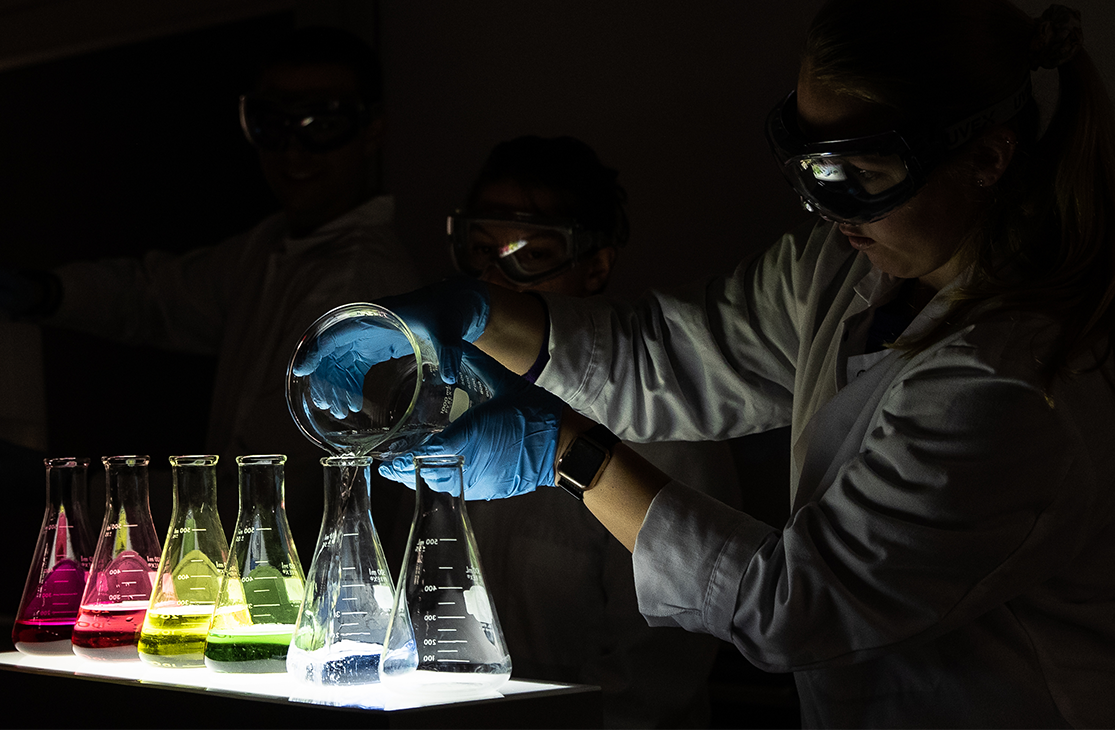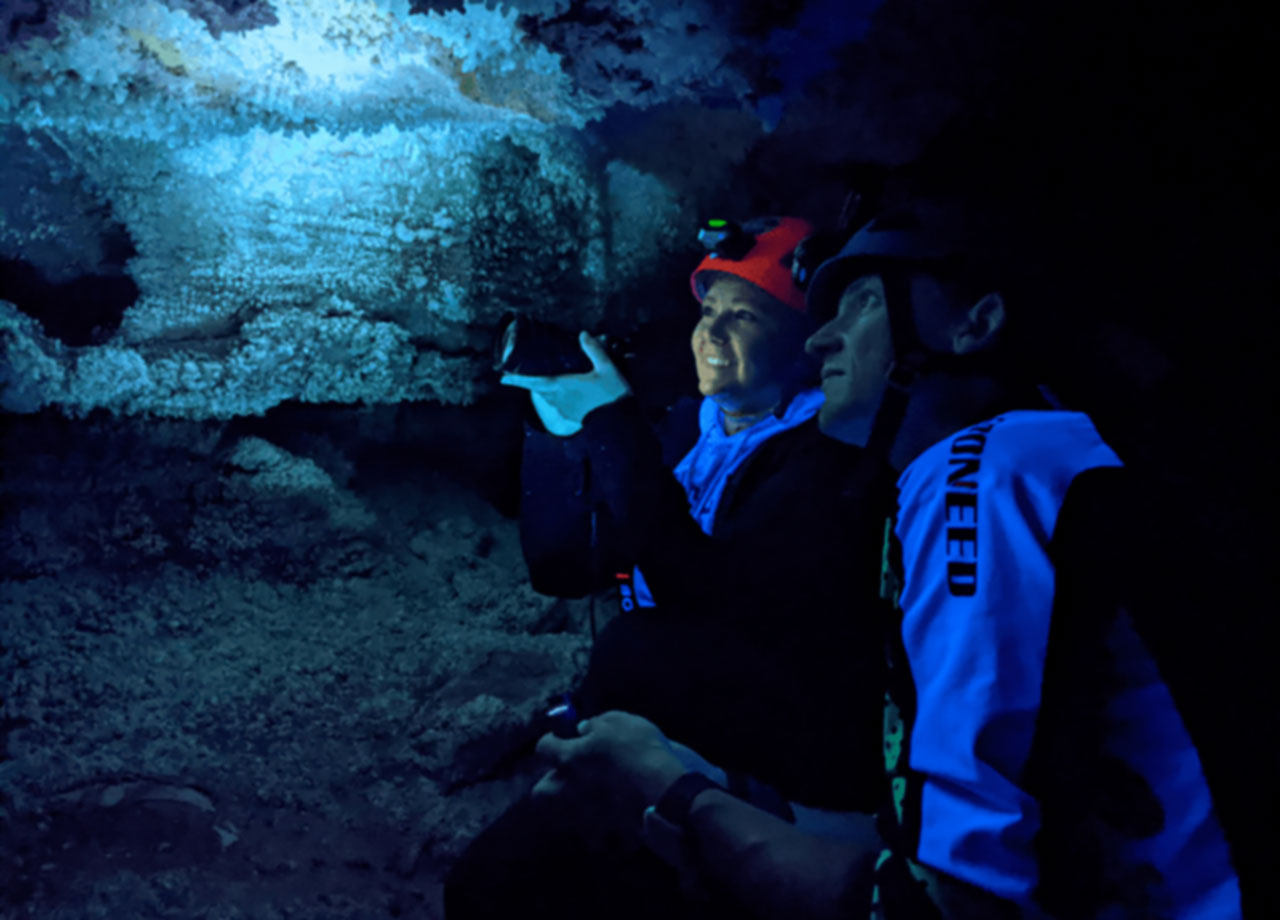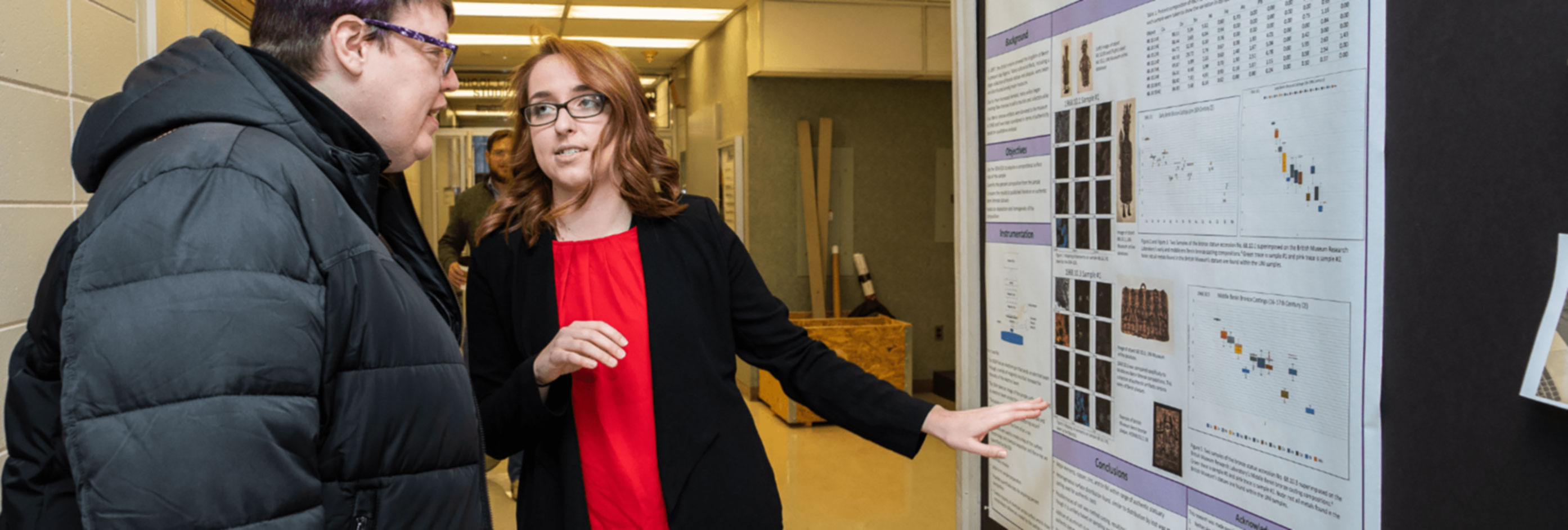Undergraduate Research
Exploration starts here
Undergraduate research is a valuable opportunity for students to gain practical knowledge and experiences that will provide a solid foundation for further study and future employment.
Researchers develop more than just an ability to perform laboratory techniques. Here, you can hone your critical thinking and problem solving skills while working side by side with our expert faculty. Plus, you’ll have the chance to present your work at national conferences, and maybe even publish your research for the world to see.

Summer Research
Want to get paid to do research? Every summer, our department supports students through the Summer Undergraduate Research Program (SURP). The program provides a generous stipend for 10 weeks of research under the direction of a faculty member.

Wind Cave National Park Research
In partnership with NASA, the University of Northern Iowa is part of an ongoing research project at Wind Cave National Park in South Dakota. Through the work, UNI chemistry and biochemistry students have the chance to travel to the caves each summer, where they study the types of isolated life that can survive in extreme subterranean systems. From this work, they hope to develop an understanding of the conditions that allow life to grow in such places, and use it as a method of understanding how similar environments might exist and behave on other planets.
Students interested in this program may contact Dr. Josh Sebree – joshua.sebree@uni.edu

International Research in France
The University of Northern Iowa has a long-standing student exchange program with L’ École Nationale Supérieure de Chimie de Rennes (ENSCR). As recently as the summer of 2019, undergraduate students from UNI have participated in this program in Rennes, France and conducted research in the laboratories of ENSCR faculty members.
Students interested in this program may contact Bill Harwood at bill.harwood@uni.edu

Want to get involved?
To get involved in research, look at the faculty research interests below to find out what general projects faculty are engaged in. Find a project or projects that are interesting to you, and email or drop by the office of the faculty to discuss their projects. The faculty are always glad to talk with students about their research projects! In addition, some students may find it helpful to touch base with peers who have been or are involved in research projects.
Dawn Del Carlo
Areas of Interest: has students working in classroom laboratory and in creating professional development for teachers to make laboratory more effective learning experiences for their students.
Martin Chin
Areas of Interest: Inorganic, Organometallic chemistry. We are investigating the reactivity of diruthenium complexes for the activation of small molecules such as dihydrogen, methane and dinitrogen. The primary instrument that will be used is the NMR spectrometer. The researcher will learn how to synthesize air-sensitive complexes and explore the reactivity of the resulting complexes.
Shoshanna Coon
Areas of Interest: works on chemistry that occurs on surfaces. Any heterogeneous chemical reaction actually takes place at the interface between two phases. Therefore, an understanding of the mechanisms of these reactions requires knowledge of the surface characteristics and the interactions of the surface with the other phase.
Nalin Goonesekere
Areas of Interest: Biochemistry, Cancer Research. Research conducted in our laboratory focuses on the broad problem of interpreting DNA sequence data to obtain biologically meaningful information.
Daniel Lee
Areas of Interest: The Lee lab is a synthetic organic chemistry group interested in developing new photochemical methodologies and synthesizing biologically relevant small molecules. Our research program focuses on advancing the efficiency, effectiveness, and sustainability of chemical synthesis. The current research interest includes designing novel molecules possessing tunable electronic and physical properties that find applications in bioorthogonal and materials chemistry research.
Justin Peters
Areas of Interest: Experimental and theoretical treatment of mathematical models, particularly those applied to biopolymers such as DNA.
Joshua Sebree
Areas of Interest: Experimental studies of the atmosphere of Titan and the early Earth, particular interest is the conditions that will lead to the formation of bio-molecules.
Colin Weeks
Areas of Interest: 1). A project that involves a combination of materials chemistry and analytical chemistry (it is a collaboration with Dr Hanson). This project has potential commercial applications and we have applied for a patent on our discoveries. This means that to preserve intellectual property rights the full details of the project can only be disclosed to the students who end up being involved on the project. If you are interested in this project, come and talk with me to get some general information about it.
2). Preparing nano-scale cellulose fibers and evaluating the properties of the fibers and mixtures made with the fibers. Materials with nanometer scale dimensions often have chemical and physical properties that differ in important ways from the bulk scale material. This research is a part of a large collaborative project with multiple research groups at the University of Iowa and Iowa State University. The goal of the project is to investigate ways of making nanocellulose fibers, characterizing their properties and incorporating them into novel new materials with useful functions in order to expand the use and performance of cellulose, a cheap and abundant material. As well as preparing nanocellulose, student researchers will utilize characterization methods such as rotational viscometry and electron microscopy.
Present your research at a professional conference
Each year, our department sends its student researchers to present their work at the spring American Chemical Society meeting.
